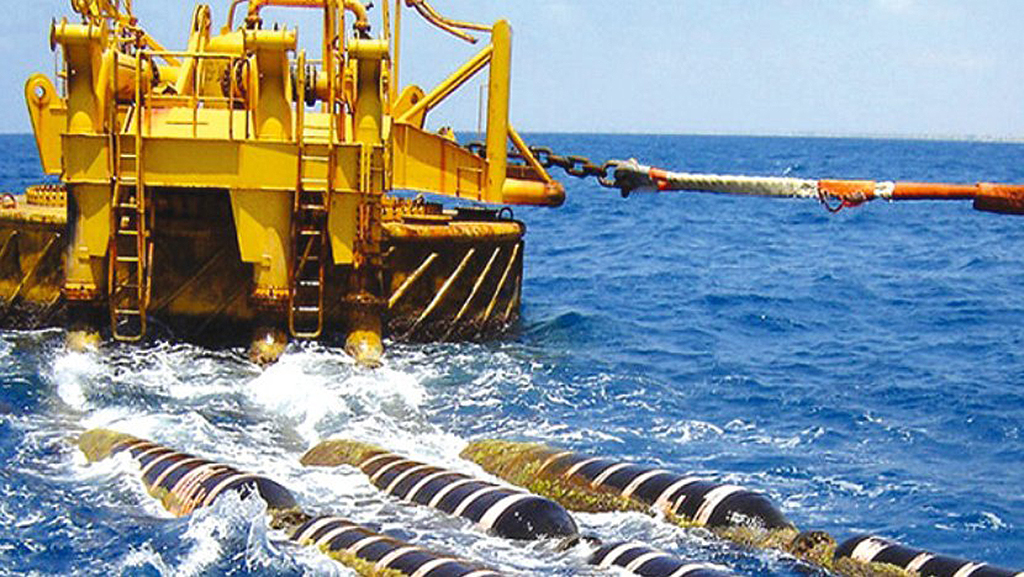Greece’s independent transmission system operator Admie on Sunday denied that it has plans to build an electricity interconnector to the country’s Dodecanese islands rather than to Cyprus.
The denial comes after a report was published in Greek newspaper Kathimerini which suggested that given the financial and geopolitical hurdles faced by the Great Sea Interconnector project, which would connect the electricity grids of Greece, Cyprus, and Israel, a project housed entirely in Greece may be more feasible.
“The scenarios developed in the publication in question have no relation to reality and indicate an ignorance of the conditions governing European projects of common interest as well as the procedures of the basis of which interconnection projects are carried out,” Admie said.
It added that it “remains committed to the implementation of this project of strategic involvement for the states involved and the European Union, which is financing it to the tune of €657 million”.
The newspaper had written that Admie, the project’s 51 per cent majority stakeholder and implementing body, and French technology company Nexans, which has been tasked with manufacturing and installing submarine cables for the project, have been “looking for a plan B to mitigate the effects of the prolonged uncertainty and the threat of cancellation”.
This, it said, is because “there is no longer any visibility regarding the resumption of surveys in international waters, which were stopped last July following Turkey’s reactions”.
“Admie and the [Greek] government are already examining scenarios for managing the impact of the operator’s finances,” it added, writing of high expenses already incurred by the project so far and the possible demands of Nexans, which may amount to a total of €1.4 billion.
It also warned that “the consequences of a final collapse of the project on Admie will be anything but negligible”, with the possibility of the Greek state selling off further shares in Admie not ruled out. At present, the Hellenic Republic is a 51 per cent majority stakeholder.
A further issue related to the cost is, according to the newspaper, based on the reimbursement of the €657m paid by the European Commission to support the project. If the project does not go ahead, the involved states will be expected to repay the money.
The newspaper writes that if the project is halted due to geopolitical risks, the cost is to be shared equally between the Hellenic Republic and the Republic of Cyprus, but hinted that there may be unwillingness on the Greek government’s part to admit that “geopolitical risks”, namely the possible Turkish reaction, would be the reason behind the project’s cancellation.
In addition, the newspaper wrote that Nexans is “looking for a way out”, despite having already constructed 160 kilometres worth of cables for the interconnector.
That production was carried out after the company was given first notice to proceed, with the Great Sea Interconnector project now said to represent around a fifth of Nexans’ production backlog.
The newspaper added that it was this fact, and its impact on the company’s share price, which “forced the company to maintain a tolerant attitude towards the delays and the backlogs which accompanied it”.
However, it wrote, Nexans is now “anxiously seeking alternative solutions, even considering the use of the cable in other projects”, though it noted that this may prove difficult given the specific circumstances behind the Great Sea Interconnector and the lack of applicability of that cable’s characteristics to other undersea cable projects.
For example, a cable to the Dodecanese would require entirely different characteristics, and as such, if Nexans were to win the tender for that project, having bid for it, a different type of cable would have to be constructed.
The reports of Admie and Nexans possibly searching for a way out of the Great Sea Interconnector project comes two months after Admie temporarily suspended payments to Nexans for the manufacture and installation of cables for the project.
At the time, Energy Minister George Papanastasiou had old CyBC the decision was understandable “in the context of the technical, fiscal, and geopolitical risks inherent to the project”, with it having been revealed that payments were suspended after Turkish warships had reportedly “disrupted” seabed surveys related to the project.
Admie to date has paid Nexans about €200 million while the next instalment of €70m had been due on February 28. In the event that Nexans decides to trigger a compensation clause should the project stall, Admie would have to reimburse the European Union for €160m in funds already disbursed.
Last year, the Greek government had warned that the European Union’s financial support for the project may be lost if the Cypriot government did not come to a final decision about the extent of its involvement in the project.
“The case is that we took on a serious responsibility together with the Cypriot side, after the Commission had evaluated the project and had given us a huge investment in this project. If this investment is lost, the chance of Cyprus being connected to the rest of Europe, and of the entire cable being realised, will be dramatically reduced,” he said.
He added, “that is something which the Cypriot government will also have to evaluate.”
He went on to say that his government’s responsibility is to protect Greek consumers and taxpayers and seemed to indicate that his government’s patience may be running out with Cyprus.
“For Greece, this project is positive as it facilitates a balancing of our electricity network, but it is not a critical project. Greece is not an island, in energy terms,” he added.
Therefore, he said, “for Greece, the important part from our point of view is of course for the project to come to fruition, but to look out for the interests of the Greek people first.”






Click here to change your cookie preferences